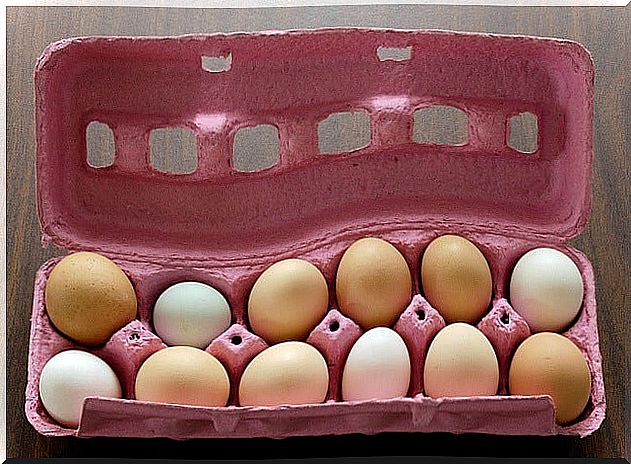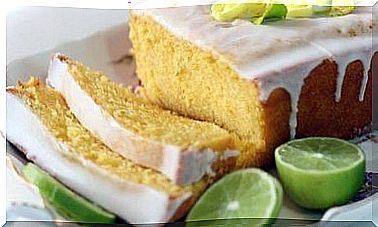Do You Keep The Eggs In Or Out Of The Fridge?
Have you ever wondered why eggs are at room temperature in the supermarket and we keep them in the fridge at home ? Do you want to know if the eggs have to be outside or inside the fridge? In this article we will tell you about it, as well as other aspects to know for their correct conservation.
Eggs better in or out of the fridge?
Eggs are an optimal food for human consumption. They are considered to contain the best dietary protein and are high in essential vitamins and minerals, according to an article published in the journal Advances in Food and Nutrition Research. Therefore, it is also convenient to know how to preserve eggs correctly.
At home, it is best to keep the eggs in the refrigerator, especially in summer. In addition, the egg white is very dense and, as the days go by, small amounts of air enter the interior of the egg, pushing it and reducing its density.
It is best to leave the eggs in their container and on a shelf in the refrigerator. Although we usually put them in the egg cup, it is not the most recommended place, since it is the part with the greatest variations in temperature in the refrigerator.
By leaving the eggs in their packaging, they are protected from changes in temperature, smells, shocks and contact with other foods. In addition, the packaging has the information on the preferred consumption date, which is not mandatory to be indicated on the eggshell, and it is essential to know when we should consume them.

So why are they at room temperature in the supermarket?
This is so because the eggs do not need cold to stay, as long as the ambient temperature is 25 ºC. In fact, it is convenient that in the supermarket they are not refrigerated since the cuticle, that is, the thin layer that surrounds the egg under the shell, can break with a sudden change in temperature.
Therefore, it is convenient to keep the egg at a constant temperature. And this is easier if in the supermarket they are at room temperature and they stay that way until they arrive at your house.
Eggs better in or out of the fridge? More questions
How can I tell if an egg is fresh?
One way to assess freshness is by checking the consistency of the white. A fresh egg has two zones in the white; one more consistent and the other liquid, which are well distinguished. When the egg is fresher, the dense white is firmer and gelatinous and loses its firmness as it loses freshness. When it is difficult to distinguish the two zones, the egg is less fresh.
Another way to evaluate freshness is to put it in a glass of water. If it sinks, it means that a short time has passed, so it has little air and is fresh.

Can the eggs be eaten after the marked date?
Eggs can be eaten a few days after the best before date if they have been kept refrigerated and have an intact and clean shell. This preferred consumption date, which is not the same as the expiration date, is a maximum of 28 days from the date set. Eggs can be considered fresh as long as:
- They are well preserved.
- Maintain its quality and safety.
Do you have to wash the eggs?
Eggs can be washed before consumption, but not when we buy them. This is because the pressure of the water could break the cuticle and, thus, be more exposed to salmonella.
This bacterium is capable of causing discomfort and intestinal transit problems, ranging from mild to severe, according to a study published in the journal Clinical Microbiology Reviews.
Salmonella infection can occur if good hygiene practices are not followed in the kitchen. Therefore, it is imperative:
- Wash your hands when handling them.
- Clean utensils after handling eggs.
- Cook the eggs to a sufficient temperature.
- Keep them in the refrigerator after preparation, if they are not for immediate consumption.
- Do not leave them at room temperature, especially in summer.
Egg conservation is easy
It is not difficult to keep preserved eggs in good condition. The only precaution to be taken is not to wash them and to put them back in the container without consuming them immediately afterwards. As for the place of conservation, the ideal is in the refrigerator, although inside their packaging they adapt well to many different temperature and humidity conditions.









